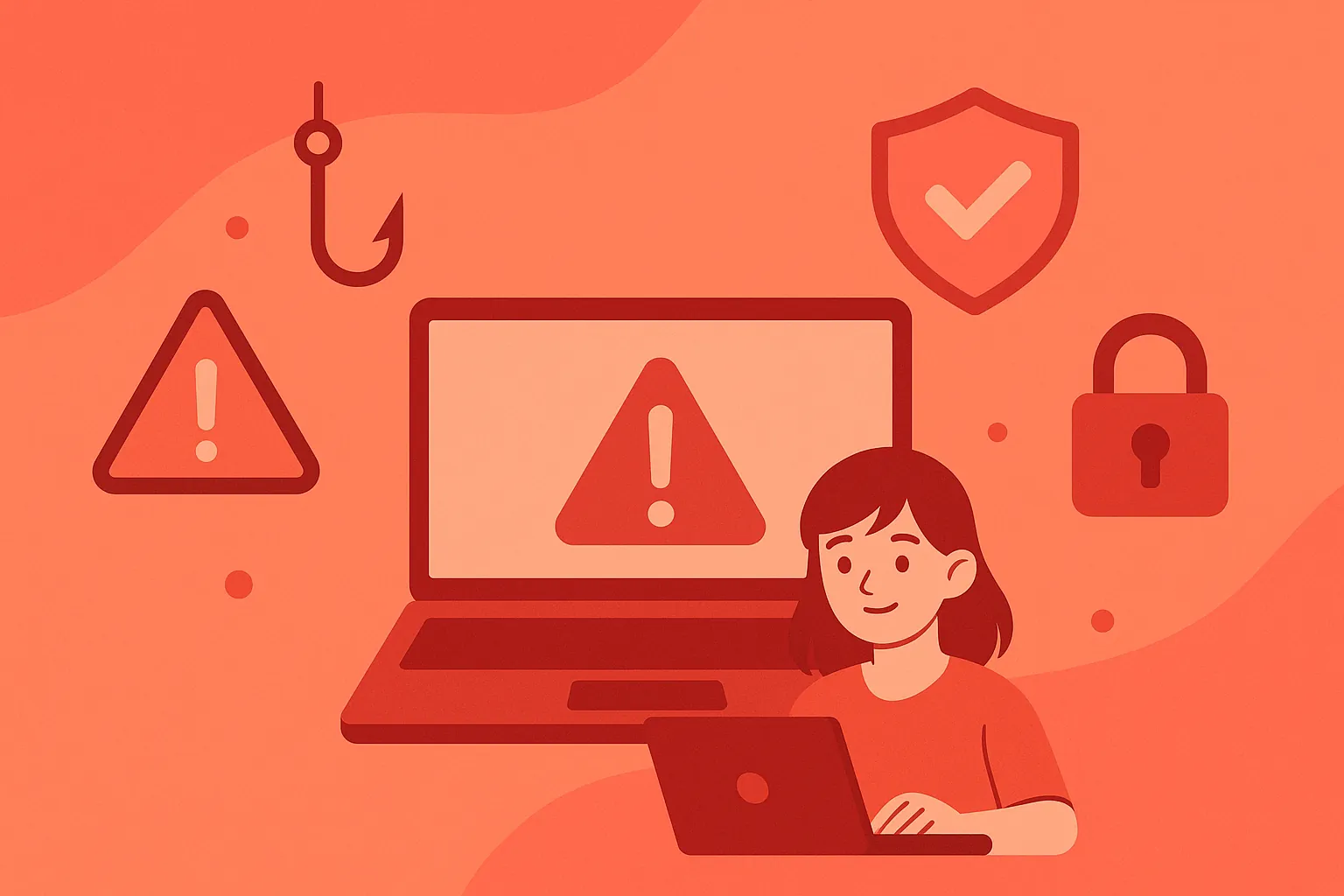Internet Protocol Television (IPTV) is quickly becoming a favorite way to watch live TV, sports, and movies online. It’s flexible, cost-effective, and can work across multiple devices. But with that convenience comes risk. Fake providers, phishing scams, and unsafe apps are increasingly targeting people searching for IPTV trials or subscriptions. Without the right precautions regarding IPTV safety, you could lose money, expose your personal information, or even face legal consequences.
This in-depth guide takes you through everything you need to know about IPTV safety. We’ll uncover common scams, explain how to spot fake services, highlight the difference between legal and illegal IPTV, and share practical cybersecurity tips so you can enjoy streaming without worry.
The Hidden Risks of IPTV
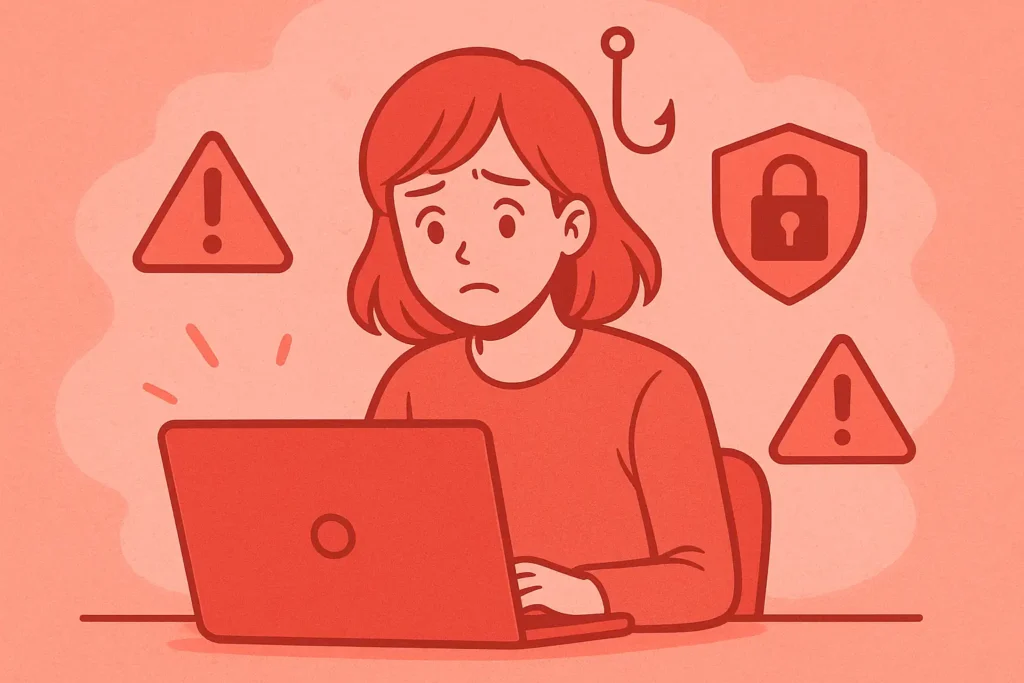
On the surface, IPTV may look like a simple way to cut costs on cable and access international channels. However, the rapid growth of the industry has also attracted scammers. The biggest dangers include:
- Financial scams – shady providers collect payments and vanish without delivering service.
- Phishing attempts – fraudulent websites copy the look of legitimate IPTV companies to steal login details or credit card information.
- Malware-infected apps – some unofficial apps are designed to hijack your device, harvest data, or push intrusive ads.
- Legal consequences – subscribing to illegal IPTV services that rebroadcast copyrighted channels can result in fines or notices from your internet provider.
Common IPTV Scams Explained

Let’s look closer at the specific types of scams that target IPTV users. Recognizing these patterns is the first step in protecting yourself.
1. The Too-Good-To-Be-True Subscription
Some websites promise “every sports channel worldwide” or “all premium channels forever” for a suspiciously low one-time fee. These offers often sound irresistible, but legitimate providers cannot offer global channel access at such prices. This is a classic bait used by scam operators to lure in unsuspecting customers.
2. Fake Free Trials
Many users search for IPTV free trials before committing to a subscription. Scammers exploit this by offering fake trial forms that harvest your email and credit card details. Instead of access, users are left dealing with fraudulent charges or an inbox full of spam.
If you want, try our Free Trial seeker which is a real-time provider finder based on online reviews and google trust list.
3. Reseller Pyramid Schemes
Another scam involves individuals pretending to be “resellers.” They claim to sell discounted IPTV subscriptions but are actually just middlemen pocketing money without connecting you to a real service. Once enough complaints build up, they disappear and rebrand under a new name.
4. Cloned Websites and Apps
Cybercriminals often copy the look of trusted IPTV brands to trick users. These cloned websites or apps might install malware on your device or redirect you to unsafe payment gateways. Always double-check URLs and app sources before downloading.
Phishing and Data Theft

Phishing is one of the most dangerous threats facing IPTV users. It often comes in the form of emails or pop-ups urging you to “renew your subscription” or “verify your account.” These fake messages can look identical to legitimate providers.
According to the Cybersecurity & Infrastructure Security Agency (CISA), phishing attacks are on the rise across all industries, and IPTV services are no exception. Once you enter personal information on a fake page, scammers can use it to access your financial accounts or sell your data on the dark web.
How to Verify a Real IPTV Provider
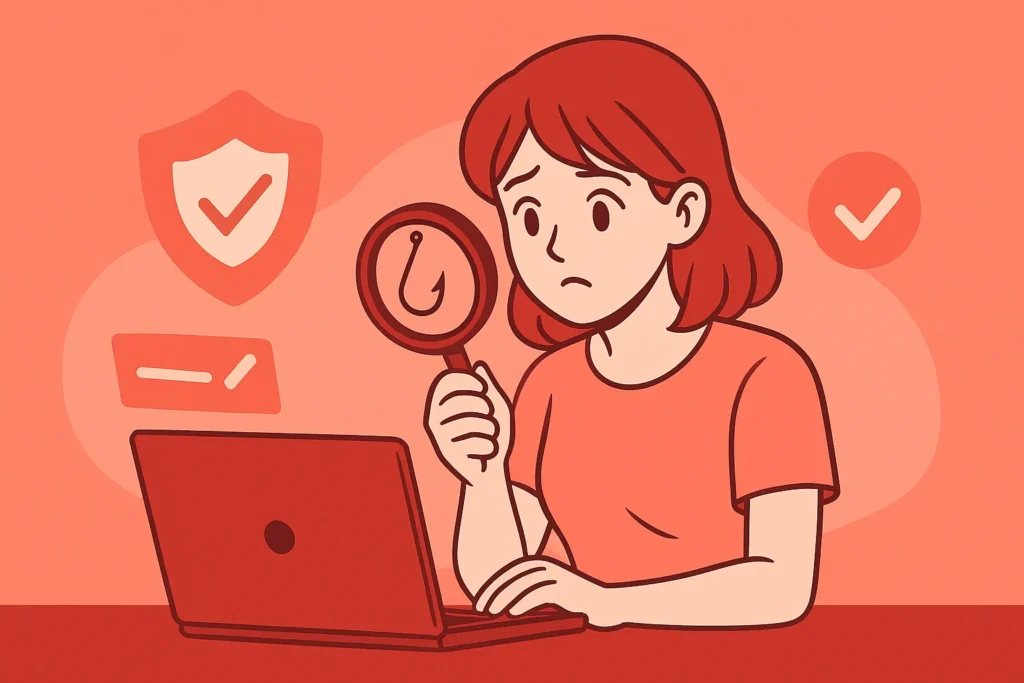
So how can you separate trustworthy IPTV providers from the frauds? Here are some reliable ways to check:
- Official website details – look for a clear business address, contact information, and customer support options. Fake providers usually hide behind anonymous emails.
- Trial access – legitimate services often provide a free or low-cost trial. If trials are avoided altogether, that’s a red flag.
- Transparent pricing – reliable providers explain costs upfront and do not push unrealistic lifetime deals.
- Secure payments – trusted services use verified payment gateways, not direct wire transfers or cryptocurrency only.
- Reviews and reputation – search user reviews on forums and social media. If complaints about scams are common, avoid that provider.
Cybersecurity Habits for IPTV Users
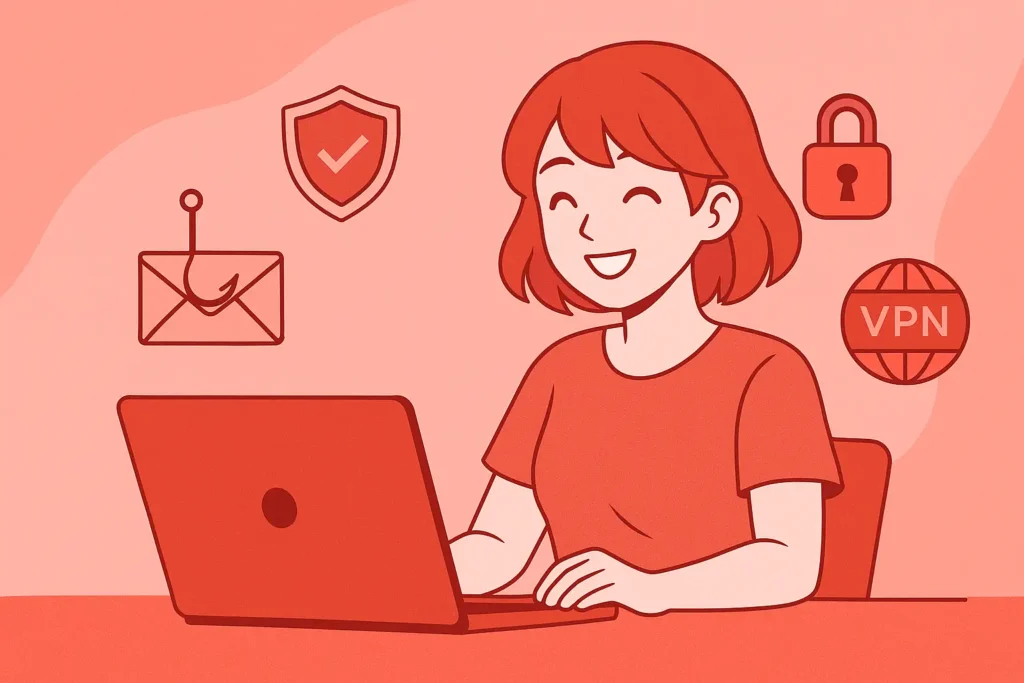
Good IPTV safety doesn’t stop at choosing the right provider. You also need to practice cybersecurity habits that protect you from potential threats:
Use Antivirus Protection
Many unsafe apps attempt to sneak malware onto your device. Installing trusted antivirus software can help detect and block harmful downloads. Tools like Norton offer real-time protection against spyware, ransomware, and malicious apps.
Be Careful With Emails and Links
The Federal Trade Commission (FTC) provides detailed tips on identifying phishing attempts. If you receive an unexpected IPTV renewal email or a suspicious trial offer, avoid clicking the links and verify directly on the provider’s official website.
Use a VPN
A Virtual Private Network (VPN) adds a layer of encryption between you and your IPTV provider, making it harder for attackers to intercept your data. VPNs also hide your IP address, giving you added privacy while streaming.
Prefer Secure Payment Methods
Credit cards are safer than direct bank transfers because they offer chargeback options in case of fraud. Avoid services that only accept cryptocurrency, as those payments are difficult to recover.
Legal vs. Illegal IPTV
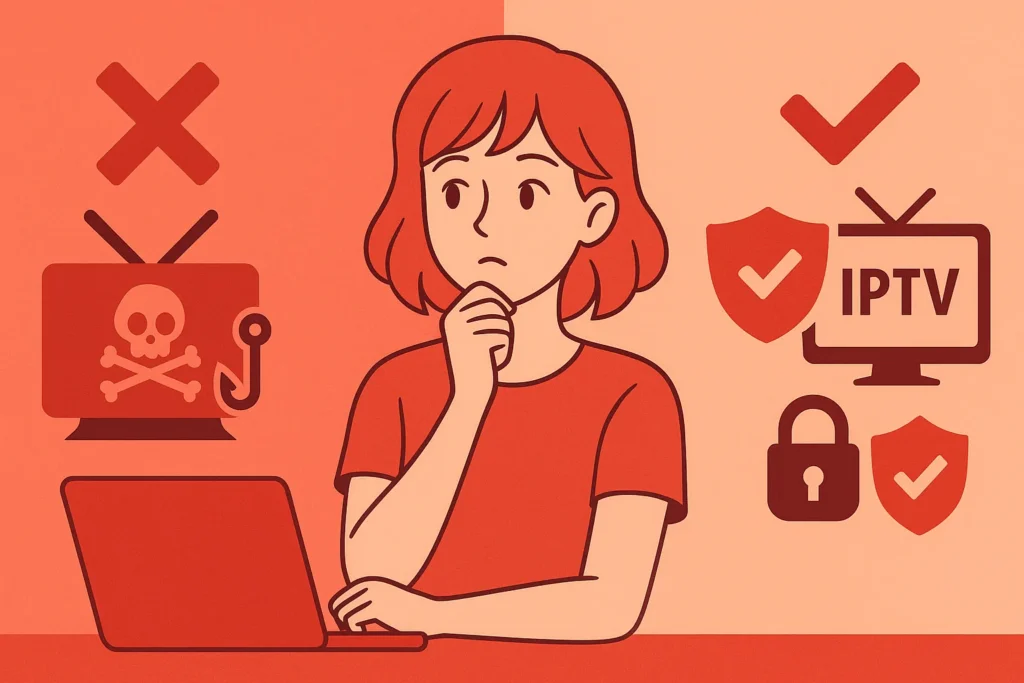
One of the most confusing aspects of IPTV is the legal gray zone. Here’s the simple truth: if a provider pays for broadcasting rights, it’s legal. If it does not, it’s illegal. Illegal IPTV services often disguise themselves with polished websites, but their business model is built on piracy.
Using illegal IPTV may save money short-term, but it puts you at risk of poor service quality, sudden shutdowns, and potential legal action. Authorized providers, on the other hand, give you peace of mind, consistent streaming, and proper customer support.
A Cautionary Story
Consider the story of Alex, a sports fan who wanted a cheaper way to watch international football. He found a website offering “all live matches forever” for just $25. Without much thought, he entered his payment details. The service worked for a week, then vanished completely. Months later, Alex noticed unauthorized charges on his card and had to cancel it. He later learned that the provider was a known scam site that had rebranded multiple times.
This example highlights why IPTV safety matters. A small mistake can lead to financial loss, data theft, and unnecessary stress. By learning to recognize scams, you protect both your wallet and your privacy.
Practical IPTV Safety Checklist

If you’re new to IPTV, use this checklist to stay secure:
- Research providers before signing up.
- Check reviews and online reputation.
- Look for trial options and transparent terms.
- Confirm secure payment methods.
- Install antivirus and keep devices updated.
- Use a VPN for extra privacy.
- Ignore suspicious emails or pop-ups.
- Stick to providers with official broadcasting rights.
Final Thoughts
IPTV opens the door to a world of entertainment, but safety must come first. Scammers are always looking for easy targets, and the best defense is awareness. By researching providers, practicing good cybersecurity habits, and understanding the difference between legal and illegal services, you can stream with confidence.
If you’re curious about trying IPTV in a safe environment, our homepage highlights legitimate free trial options that let you explore IPTV without unnecessary risk.
What are the most common IPTV scams to watch out for?
Scammers often lure users with fake free trials, unrealistic lifetime subscriptions, or cloned websites that steal payment details. Always research providers and avoid deals that sound too good to be true.
How can I tell if an IPTV provider is legitimate?
Legitimate providers show clear business details, use secure payment systems, and often offer a free trial or refund policy. Reviews and customer feedback are also helpful signs of trust.
Is it safe to enter my credit card on IPTV websites?
It depends on the provider. Only use IPTV services with secure payment gateways and HTTPS encryption. Credit cards are safer than wire transfers or crypto because they allow chargebacks in case of fraud.
Can using illegal IPTV services get me into trouble?
Yes. Illegal IPTV providers rebroadcast copyrighted content without permission. Users risk poor service, sudden shutdowns, and even legal consequences depending on local laws.
What security tools should I use when streaming IPTV?
They can be, but only if offered by a trusted provider. Fake trials are often used to harvest personal data. Always verify the legitimacy of the service before entering any information.
